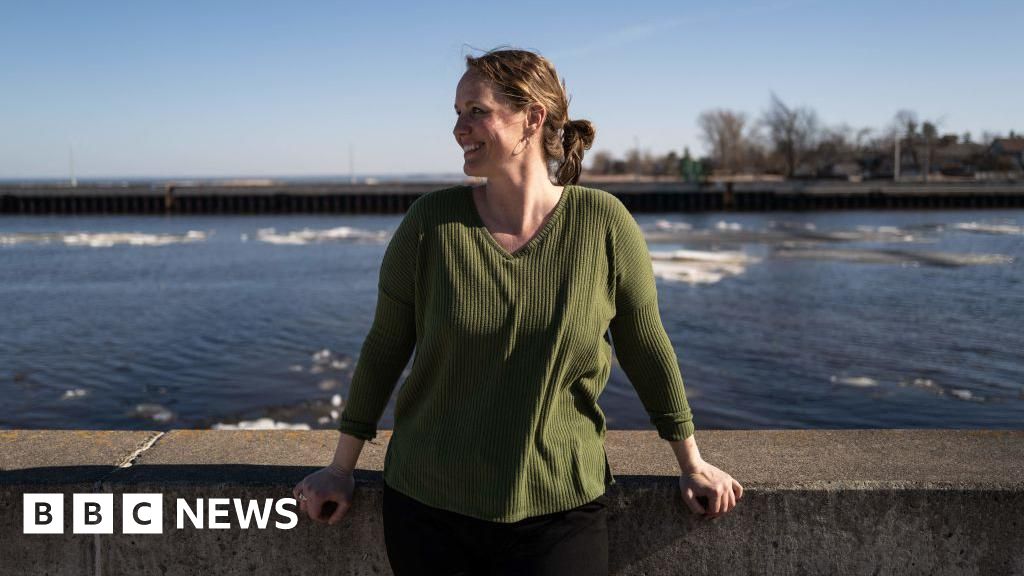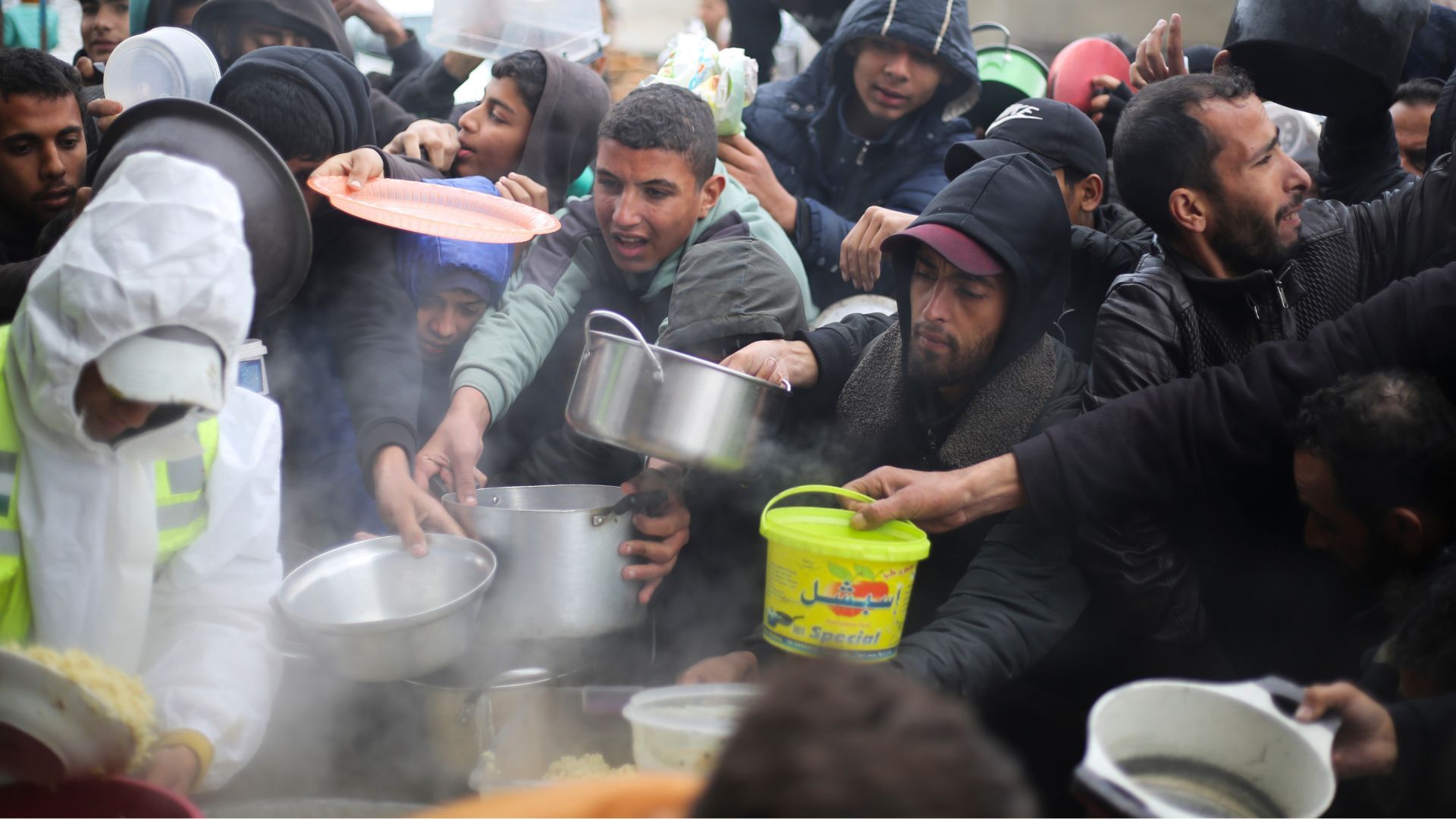‘I wish I was listened to’: NSW to respond to landmark birth trauma inquiry | Women News
Sydney, Australia – Sam Hall, an Aboriginal woman from Ormiston in southeast Queensland, was 40 weeks pregnant when she felt her baby’s movements slow. She was already anxious about her son’s safety – earlier scans had found possible problems with her pregnancy, and her partner had genetic heart issues.
But when she tried to raise her concerns with medical staff at her local hospital, she was dismissed and sent home.
“I knew something was wrong,” Hall said. “I was made to feel like a nuisance. They put a lot of it down to me being a ‘paranoid mother’ so I was never taken seriously.”
The next night, she went into labour. Terrified, she called the stand-in midwife she had been assigned. She was told to wait until her scheduled induction a day later.
“All she told me was to take some Panadol, have a shower and go back to bed,” Hall said. “[In the morning] she said to me: ‘I wish you just held out’ [to the preplanned induction time].”
By the time Hall got to the hospital, her son’s heart rate was worryingly fast and she couldn’t feel him moving. It wasn’t until a shift change six hours later that medical staff decided to perform an emergency caesarean. By the time Hall’s son, Koah, was born that evening, one of his lungs had collapsed and he had inhaled meconium, or infant faecal matter.
“By the time I first saw him, it was about 9pm,” Hall told Al Jazeera. “I couldn’t see him properly or touch him. He was such a little thing, with so many wires and cannulas attached. He had a CPAP (a mask that opens the airway and delivers oxygen to newborns with breathing difficulties) for the first couple of days. His face was so swollen it was red. Seeing your child like that changes something in you.”
When a paediatrician came to give her an update, the trauma of Hall’s experience was compounded.
“He was going through everything that was wrong and I started getting upset. He shushed me and told me I needed to be calm so he could get through what he needed to tell me,” Hall said.
Hall is one of thousands of women who have spoken out about their experience of giving birth in Australia amid a crisis in its healthcare system that has left parents traumatised, mothers with lifelong physical injuries, and driven healthcare workers out of the profession.
A world-first parliamentary inquiry in the Australian state of New South Wales (NSW) has called for sweeping reforms to better protect women giving birth. But as the state government prepares to respond this week to its recommendations, mothers and advocates argue the inquiry did not go far enough.
An invisible epidemic
A landmark Western Sydney University study in 2022 found that as many as a third of mothers in Australia suffer some form of birth trauma – physical, mental and psychological injury and distress experienced throughout pregnancy and childbirth.
The study also found that more than 10 percent of women experienced obstetric violence – a form of violence in which women who are pregnant or in the process of labour experience abuse or dehumanising treatment at the hands of medical professionals.
The same year, about 30 women in NSW’s rural Riverina region filed a collective complaint with the state Health Care Complaints Commission. They shared shocking stories of their experiences of delivering children at the local public hospital: doctors sending them home with debilitating injuries, medical staff conducting invasive physical procedures without consent and being denied pain relief during labour.
As public interest in the women’s stories grew, other women around the state and the country began sharing their experiences. Public pressure compelled the NSW parliament to convene a special inquiry into birth trauma – the first such investigation anywhere in the world.
“As a GP who used to provide antenatal care, I’d heard these stories before I entered parliament, but the sheer number of people who engaged with this inquiry is unprecedented,” said Dr Amanda Cohn, a Greens party politician in NSW and member of the parliamentary committee that conducted the Australian inquiry.
A similar inquiry in the United Kingdom, spurred by the NSW precedent, found “a maternity system where poor care is all-too-frequently tolerated as normal, and women are treated as an inconvenience”.
While Australian parliamentary inquiries are generally open to the public, they rarely prompt widespread public engagement. The birth trauma inquiry was different. It received more than 4,000 submissions, overwhelmingly anonymous, from members of the public disclosing the pain, trauma and humiliation they had suffered throughout pregnancy and birth.
The inquiry recommended the state government overhaul maternal healthcare, including by ensuring new and expectant parents receive continuity of care. It also said free psychological care and postpartum physiotherapy should be provided while medical staff should receive more training on how to support women’s choices during delivery.
But even as the state government weighs its response, many of the mothers who told the inquiry their stories are furious that the report failed to acknowledge obstetric violence as a form of gender-based violence. In a dissenting statement, the inquiry’s own chair, Animal Justice Party politician Emma Hurst, said the final report “fails to recognise the very clear evidence that this is a gendered issue”.
Rebecca Collier, one of the mothers who gave evidence, told the ABC broadcaster that the definition “was left out to make it more palatable”.
“I think we need to call things what they are and we need to be quite fierce about the words and the language that we’re using around this.”
The inquiry also exposed the dire conditions for healthcare workers tasked with caring for parents and children. Nurses, midwives, doctors and support staff spoke of enormous levels of burnout, psychological distress, vicarious trauma and compassion fatigue across the health sector. They also talked about not being given the support necessary to provide adequate healthcare or cope with the traumatic incidents they witnessed and experienced.
“We heard really compelling stories of healthcare workers being thrown into workplaces where they can’t give people the care they want to give,” Cohn said.
“Nurses and midwives are leaving the profession because their wages are too low and they don’t have the support they need. We can’t properly address birth trauma if we have short-staffed hospitals and care units. There’s a huge expectation from the community that policymakers back this inquiry up with action.”
‘Trauma for generations’
Amy Dawes suffered life-altering injuries after giving birth to her daughter in 2013, but it took 16 months for her to be diagnosed with pelvic floor muscle damage.
“That changed the trajectory of my life,” she said. “I was told I shouldn’t do any physical activity or pick up my daughter. I fell to pieces, to the point where I began thinking my daughter would be better off without me.”
Dawes went on to establish the Australasian Birth Trauma Association (ABTA), a nonprofit that works to provide support while raising public and political awareness of birth trauma – as well as the underlying culture that dismisses and normalises women’s pain and suffering during pregnancy and childbirth. She hopes the inquiry will mark a turning point in how Australia’s healthcare system treats pregnant women.
“There’s a common misconception that birth is just one day of a person’s life, but birth trauma can have ripple effects that last for generations,” Dawes said. “It can affect a parent’s ability to bond with their child, which affects the child’s development and their life in turn. It can cause relationships to suffer, not least because partners experience trauma as well.
“The long-term effects of birth injuries, which remain largely overlooked – incontinence, pelvic organ prolapse – can prevent women from parenting their infants and children, returning to the workforce and exercising, which in turn has a huge effect on people’s mental health and wellbeing. The knock-on effects for society are enormous.”
Even though Koah is now thriving, Hall has not forgotten the pain that surrounded his birth.
“He’s now such a beautiful, happy, healthy boy and I’m lucky to be his mum. But I still find it hard and incredibly unfair that this was his start to life,” Hall said.
“I wish I was listened to and taken seriously. So much could have been avoided.”
Check out our Latest News and Follow us at Facebook
Original Source







